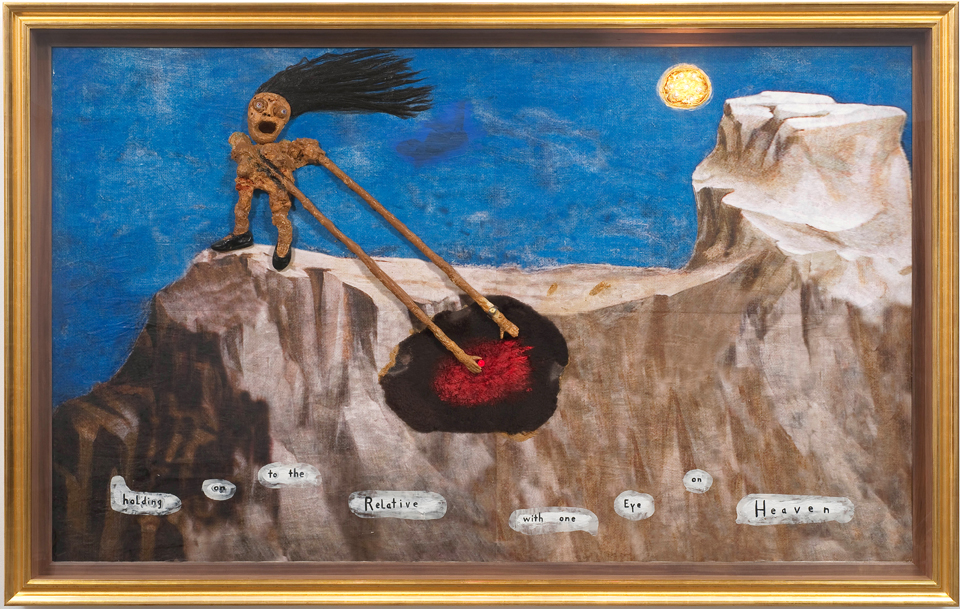News
Monday Memo
November 11, 2019

What we're talking about this week:
- John L'Heureux's legacy as a teacher, and a story about his early conversations with a young David Henry Hwang when the playwright showed up at his Stanford office one day, with "nothing to show, only the desire to write plays." L'Heureux gave him a stack of Sam Shepard's work, and Hwang returned the next week with a draft of a one-act. Hwang's new musical-within-a-play, Soft Power, is at The Public through November 17; and on December 9, he joins us for a tribute to John L'Heureux at our annual celebration of literature. Was there someone who gave you vital early support? What did that support look like? What did it mean?
- David Lynch's new show of paintings, sculpture, and furniture, Squeaky Flies in the Mud, at Sperone Westwater, which ArtNews calls "suitably odd." It sent us back to this interview with Lynch in A Public Space No. 24, and we were struck this time by the resonance between his work and Dorothea Tanning's journals that are also in the issue. We think often of this entry: "What of the human enigma, the magic of hallucination, powers of the eye, man's baffling consciousness, the relations between human beings, animals and all living things, including stones? What about Love?"
- Precision in writing, and Yiyun Li's description of the joy of the process in a conversation with Rosemarie Ho at the Nation about her astonishing book Where Reasons End: "Precision to me is a really high bar that you can’t ever reach, but you aim at it anyway. That’s a little depressing. But it’s not! It’s such a joyful process. Every time I say or write a sentence, I study the sentence again, and I say to myself, 'Does this really mean what I mean? And is there a more precise way to say it?' That process isn’t only about working with words but also about sharpening your thoughts and ideas. So I write just to have a conversation with my brain."
- Our editorial icons, and how varied are the visions of what an editor's role can be. We like William Maxwell's description, from the finale of Nancy Franklin's 1996 profile of one of our heroes, the New Yorker's Katharine White: “There are two kinds of editor—a yes editor and a no editor. Katharine was a yes editor.” And it’s not easy to convey a yes while you’re saying no—which is what an editor has to say most of the time. Katharine knew the difficulty and the importance of getting this equation right, and it was at the heart of her approach to her work. In a self-critical letter that she wrote to a friend who had praised one of her gardening columns—a piece that frowned on certain schools of flower arranging—Katharine conveyed this, and also managed to tip her hat, with characteristic generosity, to one of her writers. The piece, she wrote, “had the great disadvantage of being an attack or knocking down and, as Marianne Moore once wisely said in a lecture to students, it’s too easy to be against and much harder and more useful to be for—only she said it much better.” The article is full of gems, and we've been underlining passages as we prepare to honor another New Yorker editor, Deborah Treisman, the 2019 recipient of the Deborah Pease Prize.
- The Cheffe, a new novel by Marie NDiaye, which was recently excerpted in Literary Hub: "It wasn’t a feminine face, there in that pallid, distant light, and even less, if this makes any sense, a masculine face. It was the idea of a face, the emblem of a face, proclaiming, in that exact, impartial morning light: “Since my cooking must be represented by a human face, here’s the face that best expresses its deep simplicity, even its poverty, because this face isn’t seductive or pretty or adorned, it’s a face beyond all consideration of beauty or ugliness.”
Recent News
Writing Fellows
We're pleased to announce the 2024 A Public Space Writing Fellows.
July 1, 2024